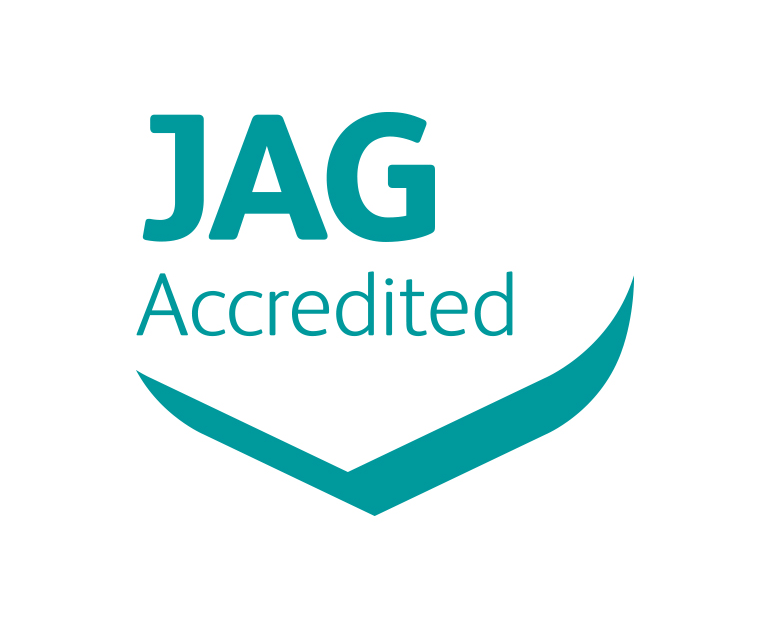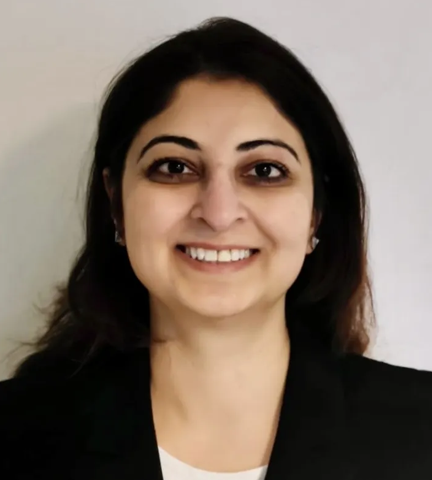Spinal surgery is a specialised treatment used to manage spine problems that haven’t responded to conservative care. It’s designed to relieve pain, restore function, and improve quality of life for people living with persistent back or nerve-related symptoms. Depending on the condition, spine surgery may involve relieving pressure on spinal nerves, stabilising vertebrae, or repairing damaged discs.
These procedures are performed by highly trained neurosurgeons or orthopaedic surgeons who specialise in spinal surgery. It’s typically considered when symptoms such as chronic back pain, sciatica, or spinal instability continue despite physiotherapy, medications, or injections.
If you're wondering whether surgery might be the next step, explore our guide ‘When is spinal surgery the next step for you’ for expert insight into when and why spinal surgery is recommended. Understanding your options is the first step toward informed decision-making and lasting relief.
What is spinal surgery?
Spinal surgery is a surgical treatment to manage a range of problems associated with your spine. It can diagnose and treat spinal disorders and conditions to provide pain relief, improve functionality, and avoid permanent impairment.
Spinal surgery is used to treat:
- Herniated or ruptured discs - where one or more of the discs that cushion your spine bones are damaged.
- Spinal stenosis - is a narrowing of your spinal column that puts pressure on your spinal cord and nerves.
- Spondylolisthesis - where one or more bones in your spine slip out of place.
- Vertebral fractures - caused by osteoporosis or injury to your spinal bones.
- Degenerative disc disease or spinal disc damage - can happen as you get older.
- Scoliosis - where the spine curves forming a C or S shape instead of remaining straight.
Spine surgery is considered when conservative treatments have not worked and your pain remains persistent and is impacting the quality of your life. It involves decompressing, moving, fixing, and replacing vertebral structures to relieve back pain.
What is the most common spinal surgery?
There is some debate as to which is the most common spinal surgery. Often, the most frequently performed spinal surgery types are carried out together - such as spinal decompression with fusion, or microdiscectomy alongside laminectomy.
The three most common spinal surgery types include:
-
Discectomy - this procedure removes a disc that has herniated or ruptured and is pressing on a nerve root or your spinal cord. In some cases, the disc may be replaced with an artificial one to preserve flexibility. Discectomy is often performed using a minimally invasive technique called microdiscectomy. Recovery is typically quicker than open surgery, with most patients resuming light activities within a few weeks.
-
Laminectomy - is used to treat spinal stenosis. It involves removing part of an overgrown vertebral bone to relieve pressure on your spinal nerves. If significant bone is taken out, spinal fusion may be required to stabilise the spine. Recovery usually takes 4 to 6 weeks, though it may extend to several months if fusion is also performed.
-
Spinal fusion - this procedure permanently joins two or more vertebrae to prevent unwanted movement and reduce pain caused by instability or nerve compression. While fusion limits motion at the treated segment, it helps restore overall spinal stability. Recovery is more gradual, often requiring up to six months for full healing and rehabilitation.
Additional spinal surgery types include other lumbar decompression surgeries such as vertebroplasty, kyphoplasty, foraminotomy, disc replacement, and interlaminar implant. Each are tailored to specific spinal conditions and patient needs and may be combined.
To explore both non-surgical and surgical options and learn more about managing back pain, visit our Back pain treatments page.
What are the costs of a spinal surgery?
The price of spinal surgery at Ramsay Health Care varies depending on your spinal condition, the type of procedure required, any diagnostic tests involved, and your chosen Ramsay hospital. While costs can differ, Ramsay provides transparent pricing and flexible payment options to support your care journey.
After your consultation with a spinal surgeon, you’ll receive a written cost quotation tailored to your treatment plan. This quote is valid for 60 days and includes unlimited aftercare, giving you peace of mind and clarity from the outset.
Ramsay is recognised by all major UK medical insurers, and most schemes cover spinal surgery. We recommend obtaining written authorisation from your provider before proceeding.
To help manage the cost of spinal surgery, Ramsay offers several finance options:
- Interest-free finance with no deposit and monthly instalments at 0% interest
- All-inclusive Total Care packages with unlimited aftercare
- Pay-as-you-go plans for flexible funding as costs arise.
How much does spinal surgery cost in the UK?
Costs can range widely depending on the procedure and provider. While the average cost of spinal surgery UK varies based on the complexity of the operation and hospital location, Ramsay ensures clear pricing and personalised quotes tailored to your needs. For more information about our orthopaedic services, visit our Orthopaedics page.
What is the recovery process after a spinal surgery?
Recovery after spinal surgery varies depending on the type of procedure, your age, overall health, and pre-surgery fitness level. While some patients recover quickly, others may need several months to regain full mobility and strength. Your spinal surgeon will guide you through a personalised plan to support healing and reduce complications.
Recovery time for spinal surgery
Your spinal surgery recovery time depends on the procedure performed:
- Microdiscectomy - most people leave hospital the same day or within 24 hours. Full recovery can take up to six weeks. You may return to work within 1 to 2 weeks if your job is sedentary, or longer if it involves lifting or physical strain.
- Laminectomy or spinal fusion - hospital stays typically last 1 to 4 days. Most patients return to work within 4 to 8 weeks, though recovery may extend to 3 to 6 months for physically demanding roles. Exercise and driving should be resumed gradually under physiotherapy guidance.
Walking and mobility after spinal surgery
Many patients ask, “how long does it take to walk after spinal surgery?”. Most people begin walking within a day or two after their surgery, often with support.
Resuming light activity like walking is encouraged to prevent stiffness and aid circulation. More strenuous exercise, driving, or travel should be phased in gradually, based on your surgeon’s advice and your individual spine surgery recovery time. A physiotherapist will guide you through gentle exercises to rebuild strength and flexibility.
Walking distances and independence improve steadily over the first few weeks. By 6 to 8 weeks, most patients can walk unaided for daily activities, though strenuous exercise or long-distance walking may take longer to resume.
Factors that affect recovery
Your recovery time for spinal surgery is influenced by:
- Type of surgery - fusion procedures typically require longer healing than discectomy
- Age and general health - younger, fitter patients often recover faster
- Pre-surgery fitness - strong core and mobility can speed up rehabilitation
- Post-operative care - following physiotherapy and medical advice is key to long-term success.
Ramsay Health Care provides tailored support throughout your recovery, including follow-up appointments, physiotherapy, and pain management.
Safety and risks of spinal surgery
Spinal surgery is a major procedure used to treat serious back problems like slipped discs, narrowed spinal canals, or unstable bones in the spine - especially when treatments like physiotherapy or painkillers haven’t worked. It’s carefully planned and performed by experienced specialists, including neurosurgeons and orthopaedic surgeons, often as part of a multidisciplinary team.
Many people ask, “How serious is spinal surgery” and “Is spinal surgery major surgery”. The answer is: spine surgery involves delicate structures like nerves and bones and is considered major surgery. That’s why it’s only recommended when other options have been explored and symptoms continue to affect your quality of life.
As with any operation, there are risks. These may include:
- Infection at the surgical site
- Bleeding or blood clots
- Nerve injury or numbness
- Failed back surgery syndrome (ongoing pain after surgery).
Some patients also ask, “Can you die from spinal surgery?” While it’s natural to worry, the risk of death from spinal surgery is extremely low. Serious complications are rare, and outcomes are generally positive, especially when surgery is performed in a well-equipped hospital by a skilled team. Your individual risk depends on the type of procedure, your overall health, and any underlying conditions.
At Ramsay Health Care, our Spinal Consultants work together to reduce risks and support your recovery every step of the way. They will discuss this in detail with you during your consultation.
Travel and activity after spinal surgery
After spinal surgery, returning to travel and daily activities requires careful planning and gradual progress. Your spine surgery recovery time will depend on the type of procedure, your overall health, and how well your body heals.
Many patients ask, “Can you fly after spine surgery?”. The answer is yes, but timing varies. After a microdiscectomy, which is minimally invasive, most people feel ready to fly within two to four weeks. In contrast, spinal fusion involves a longer healing process, and air travel is usually safe after six to eight weeks, though long-haul flights may require waiting up to 12 weeks or more.
Microdiscectomy patients often resume walking and light activity within days, with full recovery expected in six weeks. Spinal fusion patients typically need more time to regain strength and mobility, with recovery stretching over several months depending on age, fitness, and the complexity of the surgery.
If you're planning travel after surgery, speak with your consultant first. They’ll advise on safe timing and offer tips.
Tips for safe travel and mobility
Whether you're flying, driving, or taking public transport, here are some tips to protect your spine and stay comfortable:
- Choose aisle seats for easier movement and stretching
- Use lumbar support or cushions to reduce pressure on your lower back
- Walk and stretch regularly - aim to move every 30 to 60 minutes during long journeys
- Avoid lifting heavy luggage - use wheeled bags or ask for assistance
- Stay hydrated and wear loose, comfortable clothing to reduce stiffness.
Spinal surgery at Ramsay Health Care
At Ramsay Health Care, we offer expert care for patients considering spinal surgery. Whether you have chronic back pain, nerve compression, or spinal instability, our hospitals located across the UK provide personalised treatment plans tailored to your condition and lifestyle.
Our multidisciplinary team includes leading spinal surgery consultants, physiotherapists, pain specialists, and imaging experts who work together to ensure safe, effective care from diagnosis through recovery. We offer advanced procedures such as microdiscectomy, laminectomy, and spinal fusion, supported by comprehensive rehabilitation and aftercare.
We support your journey with:
-
Physiotherapy - delivered by experienced teams, our physiotherapy programmes help reduce back pain, improve joint and muscle function, restore movement, and support recovery after spinal surgery.
-
Pain management - our specialists offer tailored therapies to help control discomfort and improve quality of life before and after spinal procedures.
-
Orthopaedics - patients have access to expert consultants in musculoskeletal health, including care for spine-related injuries and degenerative conditions.
-
Diagnostic imaging - we provide advanced scans such as MRI and CT to accurately diagnose spinal issues and monitor progress throughout treatment and recovery.
Contact us today and speak to our friendly team who can answer any queries around the procedure or pricing, book an initial appointment, you can also book an appointment online.


